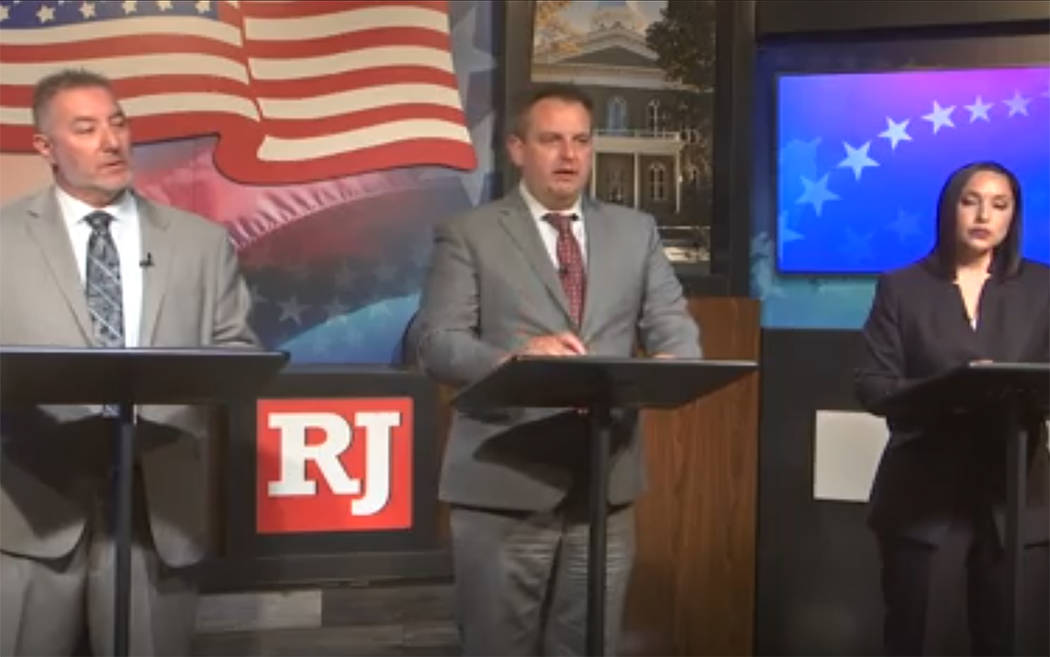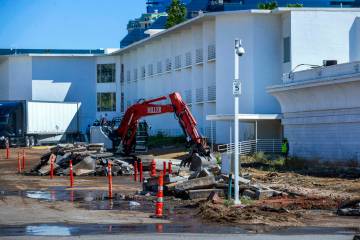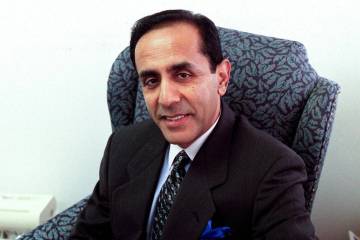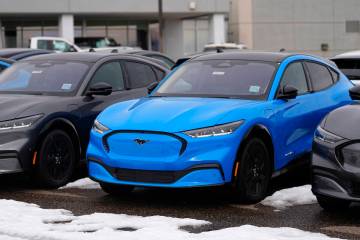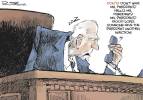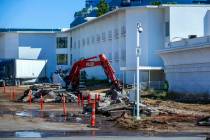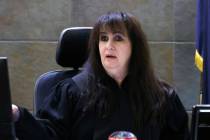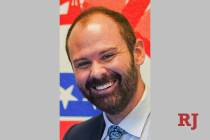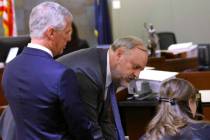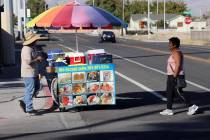Review-Journal launches judicial primary debates as public service
With more than 70 candidates in 23 judicial races on the primary ballot this year, the Las Vegas Review-Journal has launched a series of video debates to help Clark County voters make informed choices.
Review-Journal Executive Editor Glenn Cook said the debates are a public service to voters. Judicial races are among the hardest campaigns for voters to research, Cook said, because of a lack of information on lawyers’ careers and rules governing judicial campaigns.
“Voters will need all the information they can get on these races,” Cook said, “and what better way to learn about judicial candidates than to have them make their case in a debate.”
Judicial elections in Nevada are nonpartisan, and candidates are limited in what they are allowed to say on the campaign trail. Nevada’s Code of Judicial Conduct prohibits candidates from making “pledges, promises, or commitments that are inconsistent with the impartial performance of the adjudicative duties of judicial office… Judges and judicial candidates must, to the greatest extent possible, be free and appear to be free from political influence and political pressure.”
The code also states that those seeking judicial office must “act at all times in a manner consistent with the independence, integrity, and impartiality of the judiciary.”
The Review-Journal has invited all the candidates vying for seats in June to debate their opponents.
The first three debates, races for District Court Departments 3, 4 and 5, were filmed Monday, Tuesday and Wednesday in the newspaper’s video studio and can be found, along with subsequent debates, at www.reviewjournal.com/tag/judicial-debates/. A news story will be written from each debate.
Every judicial primary debate should be recorded and posted to reviewjournal.com by the end of April. Early voting for the June 9 primary election starts May 23.
Each debate includes opening and closing statements from the candidates, along with responses to questions asked by Review-Journal moderators. Each debate is expected to be about 30 minutes long.
“Judges are among the most powerful people in the community,” Cook said, “and electing an unqualified candidate can have significant ramifications for the justice system. These debates will give voters plenty of information on the qualifications and experience of candidates and whether they have the intellect and disposition to lead a court. And our Judging the Judges judicial performance evaluation, published late last year, is an additional resource for voters.”
If a candidate wins more than 50 percent of the June vote, the candidate will win the election. In primary races where no candidate captures a majority of votes cast, the top two finishers advance to November’s general election.
More than 130 candidates entered the fray for two Nevada Supreme Court seats, 32 District Court departments, 26 Family Court races, and five openings in Las Vegas, Henderson and North Las Vegas justice courts on the 2020 ballot. At least 12 District Court, 11 Family Court and two Justice Court seats were uncontested.
Races with only two candidates automatically advance to the November general election and are not listed on the primary ballot.
Contact David Ferrara at dferrara@reviewjournal.com or 702-380-1039. Follow @randompoker on Twitter.



